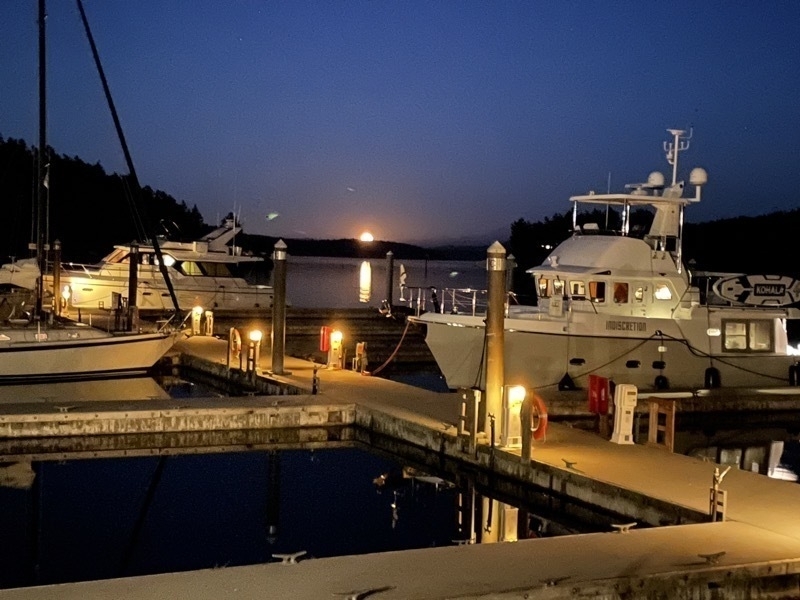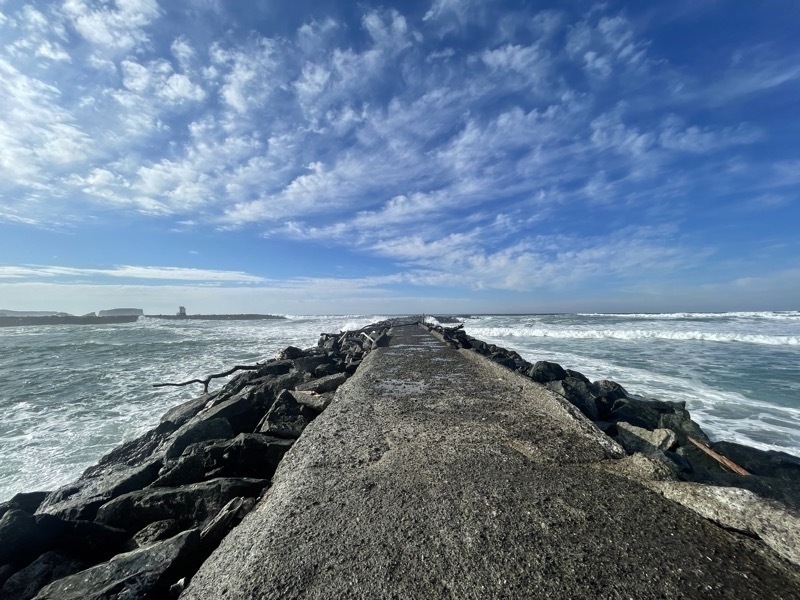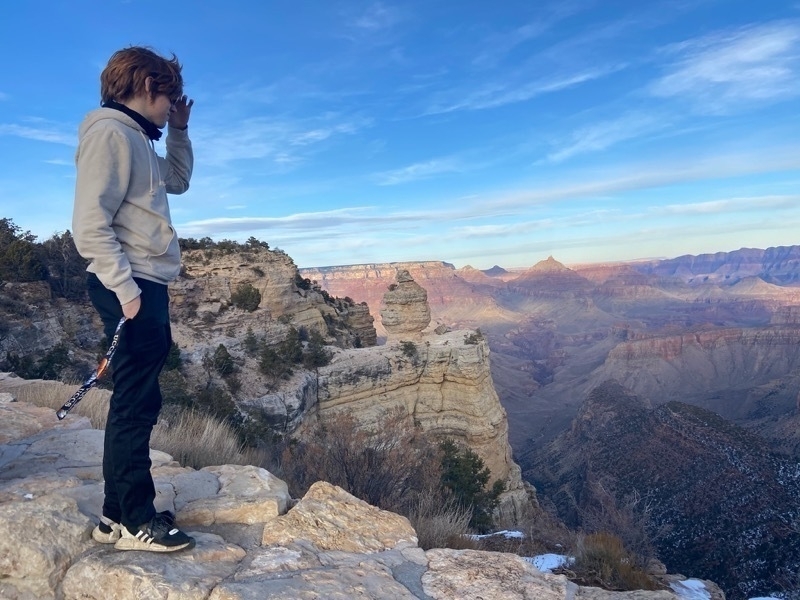A Father’s Grief
This is the most difficult thing I've ever written. I’m sharing this partly because I hope that releasing these words will provide some catharsis from the excruciating pain I have carried around these last months. Perhaps the sentiments I’ve conveyed here can be a small comfort to someone who has experienced a similar tragedy. I also know that people are worried about us, about me. Consider this an abbreviated journal of our past one hundred days. Unlike anything else I’ve written, this one contains no epiphany, enlightenment, or happy ending. This one is mired in the messy middle of heartbreak and loss.
On the night of September 27th, our son Connor died in a motorcycle accident in Colorado Springs. A car pulled out in front of him on a busy street a half mile from his apartment. He was killed instantly in the crash. He was riding a motorcycle he had owned for just one day. He was twenty years old.
I mentally replay the call we received from the coroner’s office in the wee hours of September 28th over and over and over again, my mind trying to push this all away, to wake up from the darkest, longest nightmare of my life.
I look back at that person I was on September 26th — that carefree soul with so many blessings — and compare him to the person I am today: darkened, sorrowful, broken. The two of us could be long-separated brothers, but a world apart in life experience. I no longer recognize that other me who swung so happily from the thinnest of threads, not understanding his entire world could crumble in the space of a single heartbeat.
Lisa and I have faced our share of grief together. First her mom, then mine. Her dad, then my dad. With each of these losses, one of us was always the stronger one, there to hold the other, to give comfort, to listen. This was the first time in our marriage that neither of us was strong enough to hold up the other. Thankfully, dear friends joined us on the boat to help us make it through the day, make travel arrangements, encourage us to eat, and simply hold us. I am forever grateful to these friends who also lost a near-family member for their love and help on that hardest day.
When the shock wore off and grim reality set in, we rallied as a family to do what we must. Our daughter Mallory took a leave of absence from work and joined us in Colorado Springs to help with Connor's arrangements. During breaks from our awful tasks, we hiked the hills that he loved. We hungered for stories from his friends about his last days, his last night. We splashed the healing waters of Manitou Springs on our faces, needing their restorative powers to give us the strength to finalize the affairs of such a young life, a life so wholly intertwined with ours that we struggled to find where he ended and we continue.
We returned to Seattle utterly bereft. Unable to face the grief and sorrow of others, we stole away for the San Juan Islands aboard the trawler in an attempt to regain our equilibrium. Connor spent his entire life around saltwater and boats. We knew that if there was any way for us to find peace after something like this, it would be on the water. We could feel his presence in every anchorage, every trip ashore in the tender, every meal around the saloon table, every sunset and moonrise. Visiting these familiar islands over those two weeks was both a comfort and an agony.

We returned to port steadier but still reeling. We held a small gathering of Connor's closest friends to mourn his passing. I was surprised and grateful that so many made the long trip from Colorado to Vashon Island to attend this memorial. It took everything I had to talk with others about my son in the past tense. There were tears but also smiles and laughter as we collectively remembered his life and the impact he had on all those around him. It was the first time since his passing that I remembered him with more love than pain.
In November, Lisa and I drove south to Southern California. We took the coastal route, stopping frequently to gaze at the ocean, to feel the pounding of surf, to take in giant lungfuls of healing sea air. Lisa took this same route in reverse with Connor in 2020, when his university in Colorado Springs closed down because of COVID. She pointed out the places they stopped and the sights they took in together, as if a part of him were still there, waiting for us.

We stretched a three-day trip into a week, knowing somehow that it was important for us to linger. We are feeling our way through this. There are no charts, no waypoints to follow, only instinct, love, and shared grief.
I poured my sorrow into a journal each morning and night to help me make sense of what had happened. You can trace the first stages of grief in those early entries: shock and denial, the second guessing and what-ifs, the heartbreak and rage at the universe knowing that Connor would miss the most beautiful aspects of life: falling in love, finding his path, becoming a father himself one day.
On Thanksgiving morning, I forced myself to write what I was most thankful for as Connor's father. I wrote how grateful I was to have had the chance to be his dad, that I took a sabbatical from work to spend more time with him and his sister as teenagers, that he was able to squeeze so much life and adventure into his twenty short years, that he died doing something he loved.
Luckily, we spent Thanksgiving — our first holiday without Connor — surrounded by the comfort of extended family and the welcome chaos only small children can bring to a home.
In December, we moved into our new winter home here in Arizona. The sunshine and change of scenery from our life on the trawler have been a welcome change. Mallory and her partner drove from California to spend Christmas with us. We tried to be festive and honor Connor’s memory on a holiday he dearly loved.
As I write this, It's been one hundred days since he died. I cringe at these words — their harsh reality, their certainty. There are moments, sometimes whole hours, when I forget.
The nights are the worst. I wake most mornings with tears in my eyes. My subconscious won’t accept the truth. It's as if I'm learning, again and again, the facts of this unbearable loss with each new day. My son is gone.
If Lisa rises before me, I approach her quietly, softly, like someone waiting for word in a hospital lounge, anxious for a loved one whose prognosis is not good. "How did you sleep?" I ask her out of kindness, but I already know the answer. I wonder if these splinters that keep stabbing us will ever wear down to mere rough edges.
I looked to the ancient sages who did so much to shape how I live my life: Epictetus, Seneca the Younger, Marcus Aurelius. Their counsel when I was young helped me reconcile our universal longing for permanence in this short life we are given. I tried to apply their teachings to what happened to Connor, to regain my Stoic footing, but Memento Mori feels so hollow and pointless when I consider the death of this young man whose life had only just started.
I've never been religious, but I suddenly ache for the certainty and hope the faithful possess. I have listened to Mozart’s Requiem dozens of times these past months. Though I don’t understand the Latin, there’s something universal in the music that communicates comfort and awe on a spiritual, perhaps even molecular level. Since Connor’s death, my uneasiness with mortality has softened. I look forward to the chance, however slim, of seeing my son again, and if not, to know at least that we'll be together in that vast universal void.
Our plans to cruise the northern reaches of British Columbia and Alaska next summer aboard our trawler feel somehow awful, as if our fairy tale life could possibly continue after such a loss. I feel like making a new start in the desert, to follow the dirt roads and mountain passes where Connor found such happiness in the last year of his life, to cauterize this paralyzing sadness and emerge somehow transformed, reformed, like Phoenix from the ashes.
I remain a proud father to my beautiful daughter Mallory, who inspires me daily with her kindness, intelligence, and generosity. There were days when she was my lifeboat, the one who pulled me to safety from the wreckage. After all those years of holding her hand, she held mine. We need each other more than ever now.
And I have my Lisa, my best friend and soulmate. We may look at the world through different lenses and leverage different strengths, but we never waver on the big things — what’s most important to us and our family. We’re apart for the first time since we lost Connor as she celebrates the birthday of her grand-nephew in Los Angeles. I miss her dearly. We’re two leaning pillars that can only stand upright because of the other’s weight and support. I like to think of myself as mentally and emotionally strong, but I know this: she’s the reason I’ve maintained my sanity through this ordeal. Without her love and support, I don’t know where I’d be.
A family friend who suffered the loss of her 24-year-old son called us shortly after Connor died. Her loss was still very fresh — just three months — but she was strong enough to help us in a way that no one else could. She understood exactly what we were going through.
One stranger who understands your experience exactly will do for you what hundreds of close friends and family who don’t understand cannot. It is the necessary palliative for the pain of stretching into change. It is the cool glass of water in hell.
— Laura Mckowen, We Are the Luckiest
She recommended a book that helped her: Finding Meaning by David Kessler. In his career as a grief counselor, Mr. Kessler helped develop the now-famous five stages of death and dying, and tragically suffered the loss of his 21-year-old son before writing this book.
Reading this book did help me. I began to see that what happened to Connor, though horrible, wasn’t that rare. Many, many parents have gone through this same torture of the loss of a child, some much younger, or through circumstances riddled with regret and even more heartbreak. I learned that the agony of grief is equal to the devotion and love you had. It’s no surprise that I am utterly gutted. I loved that boy so much.
About three months after Kessler’s son died, a colleague sent him this note: “I know you’re drowning. You’ll keep sinking for a while, but there will come a point when you’ll hit bottom. Then you’ll have a decision to make. Do you stay there or push off and start to rise again?”
And that’s where I find myself today: at rock bottom or very near it. I too have a choice to make. Will I stay down here to flounder? Or will I swim for the surface? A part of me knows there are many magical moments yet to be shared with family and friends, to begin again to appreciate the everyday joy of life. Will I ever again choose joy? I hope someday I can.
Thank you for reaching the end of this meandering post. If you made it this far, you must either really care about me and my family, or you’ve been part of a similar tragedy yourself and are looking for some comfort. If it’s the former, I am grateful for your concern during this most difficult time. If it’s the latter, I hope you find peace in your own way, and in your own time.
